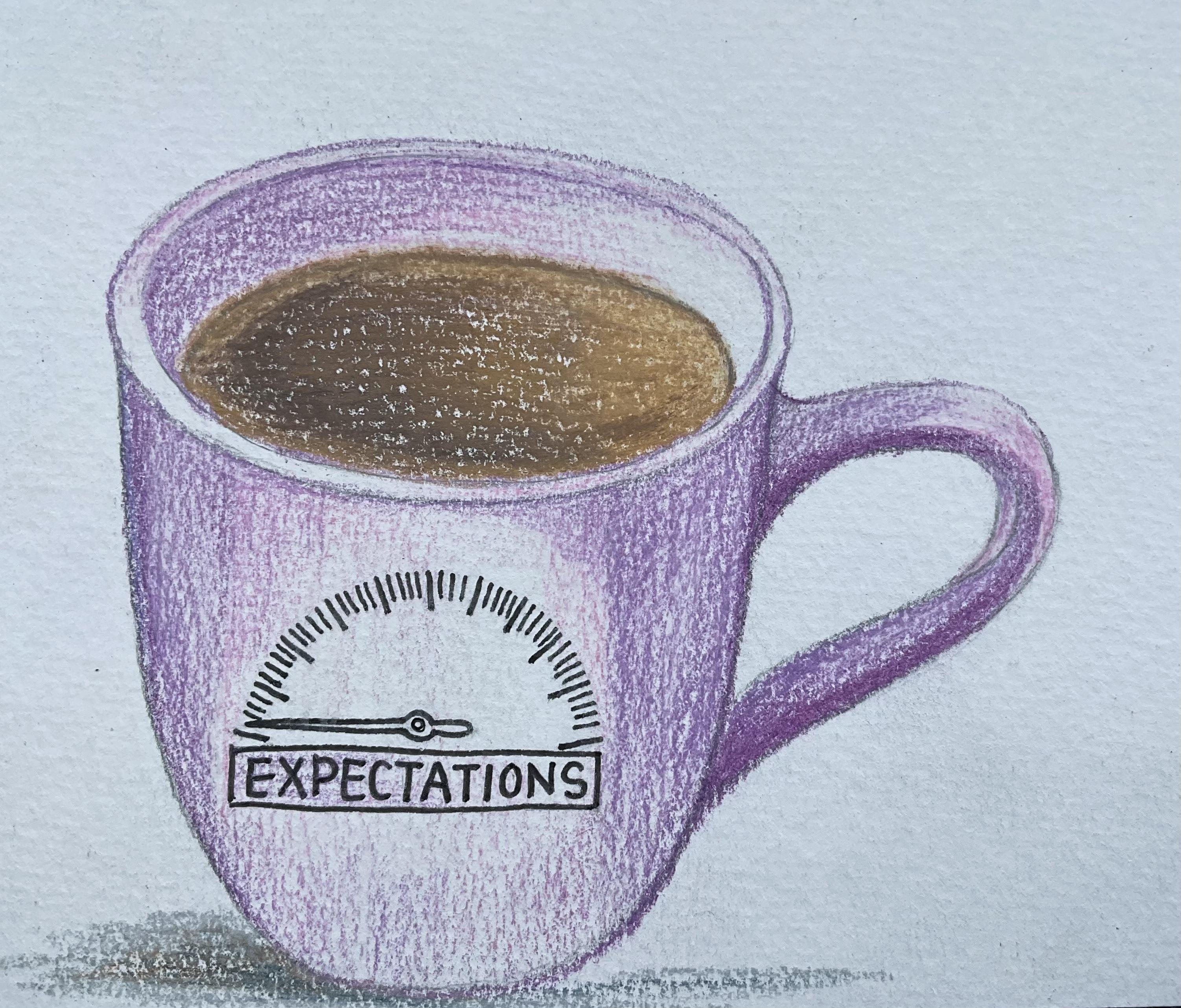An Ode To Low Expectations

IMAGE OF THE WEEK
We are grateful to Rupali Bhuva for offering this hand-made painting for this reading.

o there i was, staring at my mug of tea.
It was 1993. I was sitting over a plate of eggs in the New Piccadilly Café in Soho, London. Things were not going well. As a man, as a person, as a unit of society, I was barely functioning. More acutely, I was having panic attacks, in an era when people didn’t yet say “panic attack.” They just said Oh, dear. As far as I was concerned, I was going insane.
I took a despairing slurp from my mug, then put it back down. As I did so, the side of my hand touched the Formica tabletop, and I felt the radiant heat from where the mug had been resting a second before. Or, more accurately, I registered it. Through my private cerebral drizzle—the continuous, joy-canceling brain-rain that was my mental reality at the time—I noted it: energy, life, jiggling molecules, the world. A message from the fire of generosity at the heart of the universe. And the message was this: One day, you’ll be able to simply appreciate what’s in front of you. The tea, the café, London, the little lens of warmth on the table. One day, this will be enough.
Strive for excellence, by all means. My God, please strive for excellence. Excellence alone will haul us out of the hogwash. But lower the bar, and keep it low, when it comes to your personal attachment to the world. Gratification? Satisfaction? Having your needs met? Fool’s gold. If you can get a buzz of animal cheer from the rubbishy sandwich you’re eating, the daft movie you’re watching, the highly difficult person you’re talking to, you’re in business. And when trouble comes, you’ll be fitter for it.
“Reality is B-plus,” says my friend Carlo. I’d probably give it an A-minus, but I take his point. “There lives the dearest freshness deep down things,” wrote Gerard Manley Hopkins. But there also lives the dearest shoddiness. We’re half-finished down here, always building and collapsing, rigging up this and that, dropped hammers and flapping tarps everywhere. Revise your expectations downward. Extend forgiveness to your idiot friends; extend forgiveness to your idiot self. Make it a practice. Come to rest in actuality.
James Parker is the author of Turned On.
SEED QUESTIONS FOR REFLECTION: How do you relate to the notion that the dearest freshness and dearest shoddiness both live deep down things? Can you share a personal story of a time you were able to revise your expectations downward and extend forgiveness to yourself and others? What helps you rest in actuality?